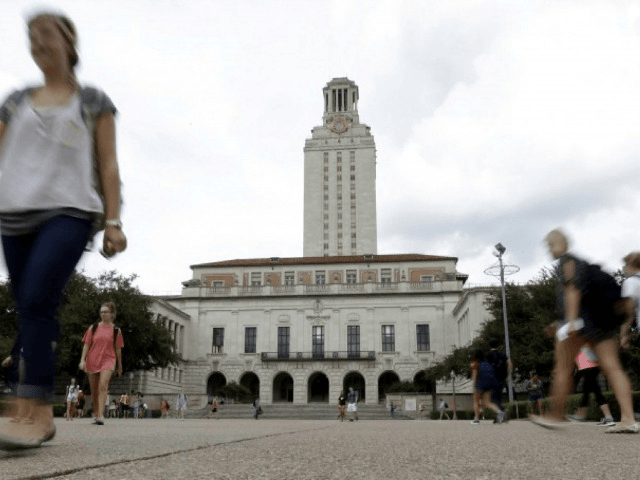The University of Texas at Austin declined a financial donation from a Hong Kong-based foundation because of the group’s reported links to the Chinese Communist Party. College officials also voiced concerns the intention behind the monetary offering was to influence activities and academia at the flagship campus.
Last week, UT President Gregory Fenves rejected this contribution from the China-U.S. Exchange Foundation (CUSEF), led by Tung Chee-hwa, the former chief executive of Hong Kong, and also the vice chairman of the Chinese People’s Political Consultative Conference (CPPCC), an organization described in a letter by U.S. Senator Ted Cruz (R-TX) as working “closely with the united front,” a Chinese Communist Party (CCP) “influence operation.”
Fenves’ decision came after a two month investigation capped off by an unexpected letter from Cruz. However, this situation surfaced in August when UT-Austin opened its China Public Policy Center housed within the LBJ School of Public Affairs. University officials tapped former U.S. diplomat David Firestein to helm the Center. According to UT-Austin, he spent most of his 25-year career making significant contributions to U.S.-China relations.
The Washington Post reported Firestein suggested making CUSEF a principal funder of the university’s China Public Policy Center. He had worked with the foundation previously. Other faculty members and university administrators raised concerns about CUSEF, Tung, and alleged ties to the Chinese Communist Party. In response, Fenves launched a an in-depth 60 day investigation. He spoke to U.S. intelligence officials and faculty experts on U.S.-China relations and in American national security. Fenves said he also read media coverage and policy research reports about CUSEF to ascertain if taking the foundation’s money would compromise UT-Austin’s academic standards or grant China any special access or influence over educational content. Amid this investigation, Firestein and CUSEF co-hosted a November event to benefit for the China Public Policy Center, according to UT-Austin.
Then, on January 2, Senator Ted Cruz, concerned about the murmurs that UT-Austin might partner with CUSEF, reached out to Fenves in a letter. He cautioned that in accepting the foundation’s money it could allow China to disseminate propaganda materials and compromise the university’s good name.
“Operating as a pseudo-philanthropic foundation, CUSEF’s ties to the Chinese Communist Party (CCP) are an issue of grave concern,” wrote Cruz, noting the “PRC aims to gradually establish influence in policy debates by shaping Americans’ perception of China” and that could erode the integrity and freedoms of UT-Austin.
Fenves responded to Cruz in a letter on January 12. He divulged his consternation over CUSEF bankrolling the China Public Policy Center and apprised the Senator about the about the recent investigation. He wrote: “Based on that review, I had decided prior to receiving your letter that the university will not accept programmatic funding from CUSEF.” UT-Austin will also decline any funds “for travel, student exchanges, or other initiatives” from CUSEF.
The UT President said the university will pursue other funding opportunities both stateside and abroad for the China Public Policy Center so students may better study and understand U.S.-China and Texas-China relations.
“We must, however, also ensure that the receipt of outside funding does not create potential conflicts of interest or place limits on academic freedom and the robust exchange of ideas,” said Fenves.
Follow Merrill Hope, a member of the original Breitbart Texas team, on Twitter.

COMMENTS
Please let us know if you're having issues with commenting.